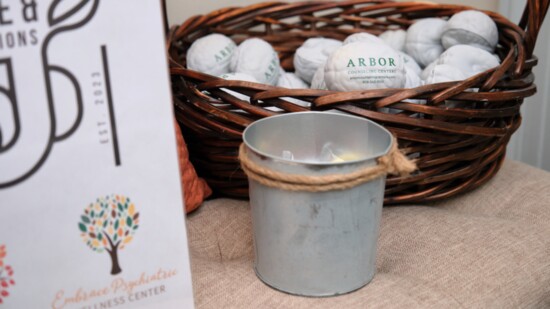The season of Spring has arrived, bringing with it a sense of hope, growth, renewal and positivity. It is also a time when we tend to focus on our own personal wellness. In the month of May, people across the nation come together to raise awareness for Mental Health, aiming to reduce the stigmas and discrimination surrounding this illness and encourage those in need to ask for support. ARBOR Counseling Centers' owners, Grace Montes and Cynthia Vanadium, share how they provide treatment and support to their patients throughout the year
They provide services to approximately 25 clients each month, catering to both male and female demographics. It is widely accepted that there are some notable gender differences when it comes to coping mechanisms. Men tend to rely more on physical and action-based coping strategies, while women tend to gravitate towards more emotionally-focused methods such as journaling. Moreover, women tend to experience issues related to anxiety, depression, post-partum, and boundaries, at a higher rate than men. Additionally, the messaging directed towards men and women is often different too. Women are often conditioned to prioritize being nice and taking care of others before themselves.
When it comes to self-care -- a buzzword that can mean anything from enjoying a spa day to planning for retirement -- Montes’s advice is that it needs to be done with intention, rather than indulgence. “What I remind folks is that it’s not going to get a manicure and a pedicure,” she says. “Those are great and that can be part of your self-care, but really, self-care is what we’re doing on a daily basis: how are we eating, what are we eating, what are you reading, what are you doing spiritually? How do you fulfill these different needs from a physical, emotional, financial, social [standpoint]? Really look at what are the things that are going to replenish who you are as an individual.” For some, she explains, that could be restoring your spirit with a walk in nature while for others it might be healing and energizing to play with kids.
While self-care is described as a very individual practice, some aspects of their therapy sessions are universal. Specifically, both women mentioned the important role that humor plays in sessions, with Vanadium pointing to the well-known adage that laughter is the best medicine. There is science to back up the expression as well. “Scientifically, we know laughter is helpful because it releases happy chemicals in your body,” Montes explained. “Some clients are very serious. You want to be in line with your clients, but a lot of times our clients are looking for that moment to laugh.” She noted that getting a person to laugh when they make a mistake instead of criticizing themselves is a good benchmark of their progress in therapy. Vanadium agrees, and says that humor is also important to her as a form of connection and authenticity. “I'm a very playful person,” she says, “so within boundaries, I want to give that window of who I am as a person to connect to my clients.”
Potential clients often need to overcome some misconceptions about therapy in general. “A lot of it is fear-based,” says Montes. One worry is how long the process takes, which Montes says is not as long as people fear. “As mental health professionals, we do a lot of Cognitive Behavioral Therapy because it’s an evidence-based practice, which means that there are fewer sessions and you’re not going into therapy for 10, 20 years. We’re really working on brief sessions because the goal really is how do we get you to connect with yourself, how do you start feeling better, how do you start working on whatever goals you want?” Vanadium puts it this way: “I think as a clinician, the role that Grace and I play is that we’re more of a guide.”
Visit www.arborcounselingcenters.com to find various resources tab where Vanadium and Montes have shared phone numbers of various hotlines, Amazon links of several recommended books, and PDFs of sundry therapeutic activities like grounding exercises, and more.
